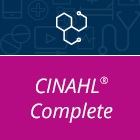Nursing & Health Sciences Research Journal
Abstract
Background: Obesity is a major health challenge that is associated with several health risks, including diabetes and hypertension. The purpose of this project was to evaluate the impact of clinical pharmacists on the therapy optimization of GLP-1 receptor agonists (GLP-1RAs) in a weight management program. Methods: This project evaluated a quality improvement initiative through a retrospective chart review that included patients who were treated with semaglutide or liraglutide between October 2022 and July 2023, with body mass indices (BMI) of 27 kg/m2 or greater with at least one weight-related comorbidity or a BMI greater than or equal to 30 kg/m2. Patients were managed by a clinical pharmacist or received the standard of care (SOC) from their primary care providers (PCPs). The primary outcome was the proportion of patients that achieved at least 5% weight loss from baseline at 6 months after initiation of GLP-1RAs. Results: Of 171 screened patients, 117 were included in this retrospective review. Seventy-four (63%) patients received SOC from PCPs and 43 (37%) patients were managed by pharmacists within PCP offices. For the primary outcome, 79% of patients in the clinical pharmacist group and 50% in the SOC group achieved at least 5% weight reduction after 6 months of initiation (p = .002). Conclusion: In Baptist Health’s primary care clinics, the clinical pharmacists have impacted the weight management program by optimizing GLP-1RA therapy. There was a statistically significant difference in the achievement of at least 5% weight loss between patients who received care from clinical pharmacists compared to patients who received SOC.
Recommended Citation
Rubi, K., Rosario, E., Panella, S., Igwe, J., Pulido, M., & Quadri, F. (2024). How Low Can We Go: Evaluation of a Pharmacist-led Weight Loss Management Program. Nursing & Health Sciences Research Journal, 7(1), 145-152. https://doi.org/10.55481/2578-3750.1195
Creative Commons License

This work is licensed under a Creative Commons Attribution-NonCommercial-No Derivative Works 4.0 International License.


